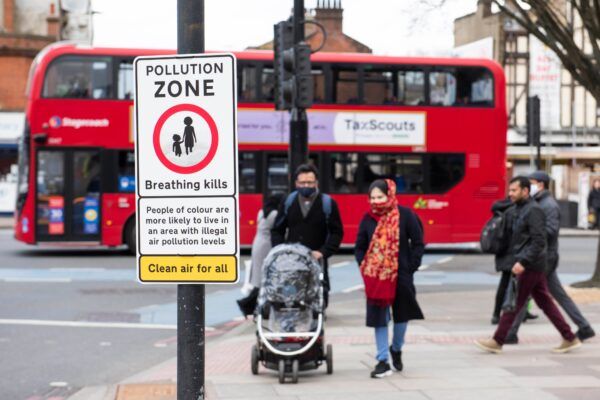The battle against air pollution presents an enormous challenge that may seem daunting to face when viewed nationally. Its complex causes, different geographical impacts and varied ways it effects individuals, can leave us unsure where to even start. This battle requires a collective effort, with communities taking the lead.
Each area, whether urban or rural, poses unique air quality challenges that demand tailored solutions. The air quality issues in a Manchester City borough differ from those in a hamlet just outside Birmingham.
While national policies play a pivotal role, genuine change originates from the local level. Grassroots organisations, deeply embedded in their communities, possess an intimate understanding that empowers them to drive change effectively.
UK Community Foundations (UKCF) embraces this diversity by ensuring that our approach resonates on a local level and addresses the specific needs of each locale. UKCF is the membership body for 47 accredited community foundations, collectively covering every postcode in the UK. Accredited community foundations provide expert philanthropy advice, connect donors with local grassroots organisations and support communities in addressing local inequalities through tailored funding.
At UKCF, we support the learning and development of our network members and manage multi-regional and UK-wide funding programmes. These programmes are designed in partnership with companies, government bodies, foundations and other donors aiming to improve social and environmental equity at a local level on a larger scale.
Therefore, it was a perfect alignment for UKCF to collaborate with the Clean Air Fund, a philanthropic foundation passionate about improving air quality. Together, we co-designed the ‘Breathe Better Air Community Fund’ to highlight the transformative influence of smaller, community-driven organisations and the profound impact of a place-based approach.
This collaboration introduces a significant new dimension to UKCF’s work on localised climate action and taps into the Clean Air Fund’s wealth of knowledge and resources, ensuring that our efforts and those of local groups are informed by their latest research.
Through this learning-focused project, the goal is to raise local awareness, foster collaboration between communities and relevant public bodies and broaden community activities promoting clean air. This collective effort aims to construct a network of change-makers dedicated to a future where every community breathes clean, fresh air.
The programme has involved funding distribution in Manchester, Liverpool and Birmingham. In Manchester, 15 activities have been funded by Forever Manchester. They include creating informational materials and awareness workshops in the Jewish community, as well as establishing a new group for young people to explore air pollution at a local level. Additionally, funding has been used to create signage that guides walkers and cyclists along safer, healthier routes away from traffic due to excess deaths from air pollution.
In Liverpool, Community Foundation for Merseyside has funded 12 groups to plan activities, such as collaborating with researchers to monitor air pollution at main junctions and green spaces, running creative activism workshops and holding community consultations with local decision makers.
In Birmingham, a 100km group bicycle ride has been organised to raise awareness around the health implications of air pollution. In total, 10 groups have been funded by Heart of England Community Foundation. Community events are being held to promote active travel, and air quality monitors are being installed to gather data at school commuting times in specific areas to create air quality awareness campaigns.
Although hyper-local projects may appear small, they provide valuable lessons for larger-scale approaches. The fight against air pollution is an evolving challenge, and our strategies must remain flexible and responsive. The partnership with the Clean Air Fund fosters a culture of continuous learning, ensuring that initiatives are not only effective in the short term but also resilient and adaptable to address emerging challenges in UK communities.
The stories from this collaboration serve as poignant reminders that change is possible, one community at a time.
